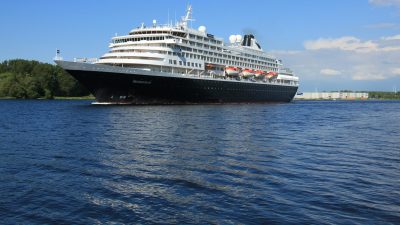- Advocatuur
- Notariaat
- Certificering van aandelen
- Commercieel vastgoed
- Erfenis en testament
- Huwelijk en samenleven
- Nieuwbouw
- Ondernemingsrecht
- Woning financieren
- Woning (ver)kopen
- Over Dehaan
- Onze mensen
- Actueel Contact
Rechtsgebieden
- Notariaat

januari 2025
december 2024
november 2024
oktober 2024
september 2024
?>Voordelen voor varen onder de Nederlandse vlag
In eerdere blogs heb ik de juridische vereisten voor het varen onder Nederlandse vlag uiteengezet. Nu is het tijd om dieper in te gaan op de (juridische) voordelen van het varen onder de Nederlandse vlag, waaronder het bekende Nederlandse tonnageregime.
Juridische Stabiliteit en Expertise
Kiezen voor de Nederlandse vlag voor uw schip staat gelijk aan het ankeren in juridische stabiliteit. Nederland beschikt over een goed gevestigd rechtssysteem, met name op het gebied van maritiem en ondernemingsrecht. De beschikbare juridische expertise zorgt ervoor dat scheepseigenaren een solide basis hebben voor het navigeren door de complexe wateren van internationale regelgeving.
Nederlands Tonnageregime
In het hart van de juridische voordelen ligt het Nederlandse tonnageregime, een baken voor scheepseigenaren die fiscale voordelen zoeken. Dit regime zorgt voor een voorspelbare en gunstige belastingklimaat, waarbij de belastingheffing is gebaseerd op de tonnage van het schip in plaats van de daadwerkelijke winst. Dit vereenvoudigt niet alleen belastingplanning, maar biedt ook een competitief voordeel op de wereldwijde maritieme markt.
Internationale Erkenning en Overeenkomsten
Het Nederlandse juridische kader strekt zijn invloed wereldwijd uit via een netwerk van maritieme verdragen en overeenkomsten. Varen onder de Nederlandse vlag brengt uw schip in lijn met deze internationaal erkende normen, wat zorgt voor soepelere interacties met wereldwijde partners, havenautoriteiten en zorgt voor naleving van internationale maritieme wetten.
Gestroomlijnd Registratieproces
Efficiëntie is van het grootste belang in het maritieme juridische landschap. Het Nederlandse scheepsregistratieproces is ontworpen om adequaat en transparant te zijn. Met een focus op het waarborgen van juridische naleving, kunnen scheepseigenaren het registratieproces naadloos doorlopen, waardoor bureaucratische hindernissen die vaak kenmerkend zijn voor de registratie in andere jurisdicties, worden verminderd.
Milieu- en Veiligheidsnaleving
Naast het tonnageregime legt Nederland sterk de nadruk op veiligheids- en milieunormen. Door aan te sluiten bij de Nederlandse juridische vereisten positioneert uw schip niet alleen als milieubewust, maar zorgt er ook voor dat het schip voldoet aan evoluerende wereldwijde regelgeving, waardoor de juridische risico’s verbonden aan milieuoverwegingen worden verminderd.
Juridische Ondersteuning en Geschillenbeslechting
Het Nederlandse rechtssysteem staat bekend om zijn efficiëntie bij het oplossen van geschillen. Scheepseigenaren profiteren van een betrouwbaar juridisch ondersteuningssysteem dat snel eventuele juridische uitdagingen kan aanpakken die zich kunnen voordoen tijdens de exploitatie van het schip, wat zorgt voor gemoedsrust in turbulente juridische wateren.
Conclusie
Op het gebied van het maritieme recht is de keuze om onder de Nederlandse vlag te varen niet slechts een symbolische handeling; het is een strategische juridische zet. Met een focus op het Nederlandse tonnageregime en een robuust juridisch kader kunnen scheepseigenaren met vertrouwen de zeeën bevaren, wetende dat ze een juridisch kompas hebben die wijst naar stabiliteit en fiscaal voordeel. Vaar dus onder de Nederlandse vlag en laat juridische expertise de wind in je zeilen zijn tijdens uw maritieme reis. Wij wensen u gunstige winden en kalme zeeën!
Bedankt dat jullie weer met mij mee zijn gegaan op deze juridische reis. Als jullie vragen hebben of onderwerpen hebben die jullie graag in toekomstige blogs behandeld willen zien, aarzel dan niet om direct contact met mij op te nemen. Behouden vaart!
Samenvatting
Uw schip onder Nederlandse vlag laten varen biedt grote voordelen, waaronder het feit dat het Nederlandse rechtssysteem zich heeft bewezen als goed gevestigd en de mogelijkheid om het Nederlandse Tonnageregime toe te passen op de inkomsten van het schip. Dit artikel beschrijft de voordelen van het varen onder Nederlandse vlag.
The benefits of sailing a vessel under Dutch flag
As I previously set out the legal requirements for sailing a vessel under the Dutch flag, it is now time to take a closer look at the (legal) benefits of sailing a vessel under the Dutch flag among which the renowned Dutch tonnage tax regime.
Legal Stability and Expertise
Choosing the Dutch flag for your vessel is akin to anchoring in legal stability. The Netherlands has a well-established legal system, particularly in the areas of maritime and corporate law. The legal expertise available ensures that vessel owners have a solid foundation for navigating the complex waters of international regulations.
Dutch Tonnage Tax Regime
At the heart of the legal benefits lies the Dutch tonnage tax regime, a beacon for vessel owners seeking tax benefits. This regime provides a predictable and favourable tax environment, with taxation based on the vessel’s tonnage rather than its actual profit. This not only simplifies tax planning but also provides a competitive advantage in the global maritime market.
International Recognition and Agreements
The Dutch legal framework extends globally through a network of maritime treaties and agreements. Sailing under the Dutch flag means that your vessel complies with these internationally recognised standards, facilitating smoother interactions with international partners, port authorities, and ensuring compliance with international maritime laws.
Streamlined Registration Process
Efficiency is paramount in the maritime legal landscape. The Dutch ship registration process is designed to be adequate and transparent. With a focus on ensuring legal compliance, vessel owners can navigate the registration process seamlessly, reducing bureaucratic hurdles that often characterise the registration journey in other jurisdictions.
Environmental and Safety Compliance
In addition to the tonnage tax regime, there is a strong emphasis in the Netherlands on safety and environmental standards. By aligning with Dutch legal requirements, you not only position your vessel as environmentally responsible, but also ensure that it complies with evolving global regulations, thereby reducing the legal risks related to environmental concerns.
Legal Support and Dispute Resolution
The Dutch legal system is renowned for its efficiency in resolving disputes. Vessel owners benefit from a reliable legal support system that can respond quickly to any legal challenges that may arise during the vessel’s operations, providing peace of mind in turbulent legal waters.
Conclusion
In the realm of maritime law, choosing to sail under the Dutch flag isn’t just a symbolic gesture; it’s a strategic legal move. With a focus on the Dutch tonnage tax regime and a robust legal framework, vessel owners can navigate the seas with confidence, knowing they have a legal compass pointing towards stability and fiscal advantage. So, set sail under the Dutch flag and let legal expertise be the wind in your sails during your maritime journey. Fair winds and calm seas!
Summary
Sailing your vessel under the Dutch flag offers great advantages, such as the fact that the Dutch legal system has proven to be well established and the possibility of applying the Dutch Tonnage Tax Regime on vessel revenues. This blog describes the benefits of sailing under the Dutch flag.
GERELATEERDE ACTUALITEITEN
Op de hoogte blijven?
Meldt u zich vrijblijvend aan voor onze nieuwsbrief.
Bestand downloaden?
Download het bestand.
Dehaanlaw.nl maakt gebruik van cookies
Als u kiest voor ’Nodige cookies’ plaatsen wij slechts functionele en analytische cookies met weinig tot geen gevolgen voor uw privacy. Indien u kiest voor ‘Alle cookies’ plaatsen wij ook tracking cookies waarmee wij informatie over u verzamelen om u gepersonaliseerde content aan te kunnen bieden. U geeft hiermee tevens toestemming voor het verwerken van de middels deze cookies verkregen persoonsgegevens conform ons Privacy Statement en Cookie Statement.
Privacy Overview
Necessary cookies are absolutely essential for the website to function properly. This category only includes cookies that ensures basic functionalities and security features of the website. These cookies do not store any personal information.
Any cookies that may not be particularly necessary for the website to function and is used specifically to collect user personal data via analytics, ads, other embedded contents are termed as non-necessary cookies. It is mandatory to procure user consent prior to running these cookies on your website.
Undefined cookies are those that are being analyzed and have not been classified into a category as yet.


































